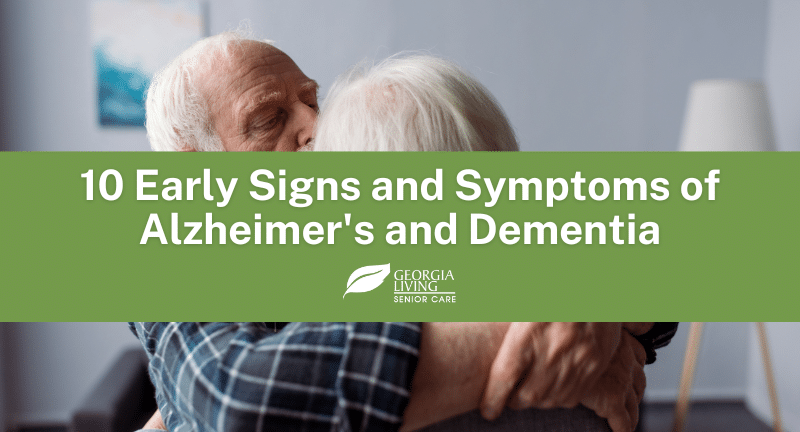Summary
When memory loss starts affecting your daily life, it could be more than just normal aging. Alzheimer's disease is a progressive brain condition that affects memory, thinking, and reasoning skills. While the signs can be subtle at first, knowing what to look for can help you or your loved ones get early intervention and support.
When memory loss starts affecting your daily life, it could be more than just normal aging. Alzheimer’s disease is a progressive brain condition that affects memory, thinking, and reasoning skills. While the signs can be subtle at first, knowing what to look for can help you or your loved ones get early intervention and support.
The 10 Warning Signs You Shouldn’t Ignore
1. Memory Loss That Affects Daily Activities
We all forget things occasionally, but Alzheimer’s-related memory loss is more significant. Watch for:
- Forgetting recently learned information
- Repeatedly asking the same questions
- Increasing reliance on memory aids or family members for basic tasks
- Difficulty remembering important dates or events
Normal aging: Occasionally forgetting names but remembering them later.
2. Planning and Problem-Solving Difficulties
People with early Alzheimer’s might struggle with:
- Following familiar recipes
- Managing monthly bills
- Working with numbers
- Tasks taking significantly longer than before
Normal aging: Making occasional errors in balancing a checkbook.
3. Struggling with Familiar Tasks
Keep an eye out for difficulty with:
- Driving to familiar places
- Managing a grocery list
- Following game rules they’ve known for years
Normal aging: Needing occasional help with electronic devices or appliance settings.
4. Time and Place Confusion
This involves:
- Losing track of dates and seasons
- Difficulty understanding events not happening immediately
- Forgetting where they are or how they got there
Normal aging: Momentarily forgetting the day of the week but figuring it out later.
5. Visual and Spatial Difficulties
Watch for:
- Problems with balance
- Difficulty reading
- Problems judging distance
- Trouble with color or contrast
- Driving difficulties
Normal aging: Vision changes related to cataracts.
6. Language Problems
Look for:
- Trouble maintaining or joining conversations
- Stopping mid-conversation and unable to continue
- Repetitive speech
- Struggling to name familiar objects
- Using unusual word substitutions
Normal aging: Occasionally struggling to find the right word.
7. Misplacing Items
This includes:
- Putting things in unusual places
- Inability to retrace steps to find lost items
- Accusing others of stealing (especially as the condition progresses)
Normal aging: Occasionally misplacing items but able to retrace steps to find them.
8. Poor Judgment
Watch for:
- Difficulties making decisions
- Poor financial choices
- Declining attention to personal grooming
- Decreased attention to hygiene
Normal aging: Making occasional poor decisions.
9. Social Withdrawal
Notice if someone:
- Withdraws from hobbies
- Avoids social activities
- Has trouble following favorite sports or activities
- Shows less interest in social engagement
Normal aging: Occasionally feeling uninterested in social obligations.
10. Mood and Personality Changes
Look for:
- Increased confusion
- Suspicion
- Depression
- Anxiety
- Easy agitation, especially in unfamiliar situations
Normal aging: Becoming irritable when routines are disrupted.
Taking Action: What to Do Next
If you notice any of these signs in yourself or someone you care about, don’t brush them aside. While it might feel scary or uncomfortable to acknowledge these changes, early detection is crucial. Here’s what you can do:
1. Schedule an appointment with your doctor for a proper evaluation
2. Document the changes you’ve noticed
3. Bring a family member or friend to help provide additional information
4. Ask about treatment options that could help maintain independence longer
With early detection, you can explore treatments that may provide some relief of symptoms and help you maintain a level of independence longer.
For questions or guidance, you can call:
Georgia Living Senior Care Home Office at 912-489-4468
Any Georgia Living Senior Care Community at the numbers listed on our website (click the location at the bottom of website for the location closest to you)
The Alzheimer’s Association at 800-272-3900
Note: This article is based on information from the Alzheimer’s Association. Always consult healthcare professionals for medical advice.

